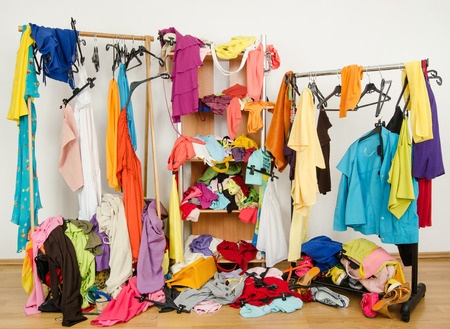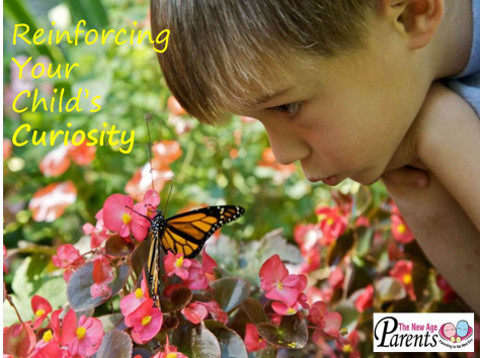Valentine’s Day is the day to celebrate love…not war. But is your housework getting in the way of your romantic day with your loved one. Whether it is doing the dirty dishes or clearing out rubbish from the smelly bins – housework is one of the mains reasons why couples argue. According to an eHarmony survey, household chores are one of the top nine reasons that couples fight.

Helpling, an online cleaning platform, did a survey with its customers to describe their common household fights and based on the most common answers, has provided some easy solutions.
1. Hanging out laundry
While it seems odd, the way one hangs up the clothes/laundry can cause many fights. Do the socks dry better when they are already paired? Do you really protect colours better when you dry jeans and shirts inside-out? Some people get easily annoyed if there’s no “curation” in the hanging, and clothes aren’t hung up in groups (slips with slips, jumpers with jumpers). And things can get really heated when twisted and knotted clothes are still damp and funny-smelling after a few days. Having said this, the problem may lie in your relationship rather than on the hanger.
TIP: Rationalize: does it really hurt anyone?
If you really want to avoid these types of fights, think about how the way your partner has hung the clothes actually has any consequences. If they’re drying with creases or get stinky, try to emphasise the consequences and leave it up to that person to deal with it. The both of you can also agree that each person will hang their own clothes. For the humorous among us, maybe spraying a bit of perfume on your partner to cover the lingering guinea pig smell could be a light-hearted nudge.
2. Leaving the toilet dirty
Pee stains, unflushed tampons, remnants of unspeakable things, or a completely clogged toilet – it’s easy to empathise with someone who gets annoyed by these. It’s not exactly the biggest turn-on in the world (at least we hope it’s not…).
TIP: Put up a sign for some light bathroom reading
Fact: people like to read in the bathroom, according to a survey from Bnai Zion Medical Centre. 64% of men and 41% of women confess to be regular toilet readers. So give your partner some instructions to read during their ‘alone time’. More is more, don’t be afraid to add some instructions even if you have already an assortment of signs along the lines of “sit down when peeing”, “aim properly”, and “flush, flush, flush”. A toilet is a place for law and order, and your partner will have plenty of time to study your 10 bathroom commandments whilst pondering the meaning of life.
3. Clearing away your loved one’s “rubbish”
Finally, you get round to cleaning up the flat and you come across all your loved one’s old and unnecessary possessions. Worn-out, smelly sneakers that you know will never be worn again, the countless magnets bought last holiday (a redundant souvenir) – many people return to their old hoarding habits after a while. You know very well that they won’t even notice if it’s gone, so you bin the “rubbish”. In fact, many respondents claim that the bin is the best but also the most dangerous solution to your partner’s “rubbish”.
TIP: Use a reminder sticker: “To Be Removed”
You can mark unnecessary mess with a colourful warning sticker. “This will be removed if you don’t [take this action] before [date].” For the hoarders, stick it onto their junk and take some photos, so you can prove that you flagged it as rubbish weeks before you threw it away. And for the scatterers? You want to prevent them from leaving clutter around to start with, so the warning needs to be stronger. Try: “Last warning – next time it’s straight to the bin.”
4. Scattered bodily remnants
Old clothes and useless souvenirs are just among one of the trash-worthy and even less appetising items that annoy your partners. Other items include finger and toe nails on the kitchen counter, body or facial hair in sinks and on sofas. Yes, we love our partners through and through, but most of us prefer to focus on the bits of them still attached to their bodies. This is not an unreasonable thing to fight about, as things like nail clippings often carry bacteria and can be rather unhygienic (not to mention disgusting).
TIP: Add a little bit of humour: Make a exhibition out of nail clippings
Sometimes humour can be a good way to deal with a problem. In a study conducted by University of Kansas, they found that humour plays a central role in attracting and keeping your partner, as a shared laugh is a pleasant experience that helps to develop long-term relationship. So our tip is to collect the bits of themselves that they leave behind and think of ways to bring attention to this (gross) habit in a humorous way, but one that still shows how off-putting it is. You can put their nail clippings in plastic bags and hang on the wall like a crazy art gallery, or put the bags near their breakfast (but not yours!). You can come up with funny ways to relay the message rather than fighting about it.
5. Forgetting to make the bed
Making the bed is a very particular issue: some people don’t mind at all, while others care greatly about it. It gets worse if one partner feels that the other brings dirt and germs into the bed, such as sand or food crumbs. A messy bed to someone that cares about it can be akin to a slap in the face, or disrespect of this love nest. Fighting over this may damage more than a peaceful night’s sleep… after all, sleeping isn’t the only thing you do in bed.
TIP: Make a bed ritual: treat it as your ultimate love temple
You don’t have to think of making the bed as work, instead, change your perspective towards it and make it a ritual for your peaceful and loving space. Make the bed, spray some essential oils on the sheets, and make going back to bed such a pleasant experience that you both will relish in. It will be your love temple and you can feel like Greek gods in it.
As for the crumbs and sand in your love nest, changing the sheets once a week can be a relief. This also means that sweat and bacteria aren’t left to accumulate. You want to share the love, not dirt.
This article is contributed by Helpling.
* * * * *
If you find this article useful, do click Like and Share at the bottom of the post, thank you.
Want to be heard 👂 and seen 👀 by over 100,000 parents in Singapore? We can help! Leave your contact here and we’ll be in touch.

























































